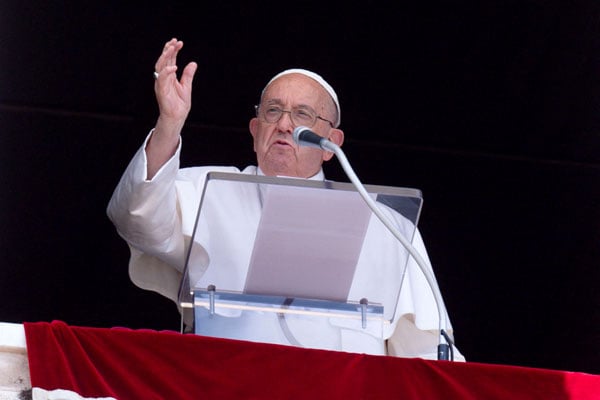Prime
Lake Bunyonyi’s depth reduces

Effects. Some of the terraces on the shores of Lake Bunyonyi in Ikamiro Parish, Muko Sub-county in Rubanda District that have been degraded. PHOTO BY ROBERT MUHEREZA
What you need to know:
- He appealed to the central government to consider allocating enough resources to natural resource management in the districts of Kigezi Sub-region to enable them reinstate the destroyed terraces on hill tops and valleys so as to reduce landslides that have led to the loss of lives and property in the area.
- Concern. Leaders attribute it to poor farming practices that have led to the destruction of most terraces on the hills surrounding the lake, causing silting.
RUBANDA. The reduction in the depth of Lake Bunyonyi, the second deepest lake in Africa (after Lake Tanganyika), has raised concern among leaders in Rubanda and Kabale districts.
Kabale District Natural Resources Officer Rogers Akatwijuka says the lake, which was 900 metres deep about 10 years ago, has since lost about 10 metres.
Mr Akatwijuka says together with his team from the Department of Natural Resources, in January, they sampled different spots in the lake and established that the depth had reduced. He says they carried out the study following reports that there was massive silting of the lake.
He attributes it to poor farming practices that have led to the destruction of most terraces on the hills surrounding the lake, causing silting.
The community leaders say the colour of the lake changes to army green during the dry season and emits a bad smell.
Mr Akatwijuka says the water colour and the bad smell could be indicators of massive pollution and that there is a need to test the water to establish the phenomenon.
Benefits
Lake Bunyonyi is a major source of fresh water for domestic consumption besides being an international tourism centre, earning millions of shillings for the government and the community that has invested in camps and resorts.
Mr Akatwijuka says the lake contributes to micro climate regulation and global hydrological systems besides being a cultural centre for the indigenous clans in Kigezi.
Rubanda District Environment Officer Pamela Katushabe says stakeholders must join hands to protect further degradation of the lake, especially by educating the
neighbouring communities about sustainable utilisation.
She says illegal activities such as car washing that lead diesel and oil from vehicles polluting the lake and garbage dumping should immediately stop.
Measures
“The digging and establishing of crop gardens around the lake by the community members without observing the environmental laws that require leaving a distance of 100 metres should stop. The local leaders and other stakeholders should be vigilant in implementing environmental protection laws if we are to conserve Lake Bunyonyi for generations,” Ms Katushabe adds.
The area leaders have welcomed the government conservation initiative. Last Thursday, the minister of Water and Environment, Mr Sam Cheptoris, launched a three-year project for developing a green economy around the lake basin.
The project worth Shs2.5 billion is funded by the European Union and will be implemented by two NGOs African International Christian Ministry, Self Help Africa, and Kabale and Rubanda district local governments.
Mr Cheptoris said the project should provide solutions for the sustainable use of the lake.
“I call upon the stakeholders implementing the development of a green economy around Lake Bunyonyi to do it timely and in an efficient manner by fully utilising the resources given to them for the benefit of the people in the area and the country in general,” he said.
Mr Obin Engorak from Self Help Africa says they will “develop an integrated management plan for Lake Bunyonyi, promote community-based natural resources management practices around it and work with local authorities and private sector players to promote employment and livelihood opportunities that are environmentally friendly.”
Funding
Rubanda District chairman Jogo Keneth Biryabarema says the Shs2.5 billion grant for developing a green economy around the lake is too little compared to the challenges that are threatening its existence.
“I thank the European Union for the Shs2.5 billion grant but it should be multiplied by five times if the challenges threatening the existence of the lake are to be squarely handled. As local leaders, we have started massive campaigns on protecting and conserving our environment by initiating by-laws to suit our ragged terrain,” says Mr Biryabarema.
He appealed to the central government to consider allocating enough resources to natural resource management in the districts of Kigezi Sub-region to enable them reinstate the destroyed terraces on hill tops and valleys so as to reduce landslides that have led to the loss of lives and property in the area.
“Nature is misbehaving because it is angry with the local residents that have destroyed it. We should work as a team to ensure that we conserve nature and restore its degraded area so that we can be able to live happily with it,” Mr Biryabarema added.
About lake
Lake Bunyonyi (Place of many little birds) is located between Kisoro and Kabale and it is close to the border with Rwanda.The lake appears on the 5,000 Shilling note under the title “Lake Bunyonyi and terraces”. Towns on its shores include Kyevu and Muko, while its 29 islands include Punishment and Bushara.
Voices
“The digging and establishing of crop gardens around the lake by the community members without observing the environmental laws that require leaving a distance of 100 metres should stop,” Pamela Katushabe, Rubanda District Environment Officer
“I call upon the stakeholders implementing the development of a green economy around Lake Bunyonyi to do it timely and in an efficient manner by fully utilising the resources given to them for the benefit of the people in the area and the country in general,” Sam Cheptoris, minister of Water and Environment
“I thank the European Union for the Shs2.5 billion grant but it should be multiplied by five if the challenges threatening the existence of the lake are to be squarely handled.” Jogo Keneth Biryabarema, Rubanda District chairman



